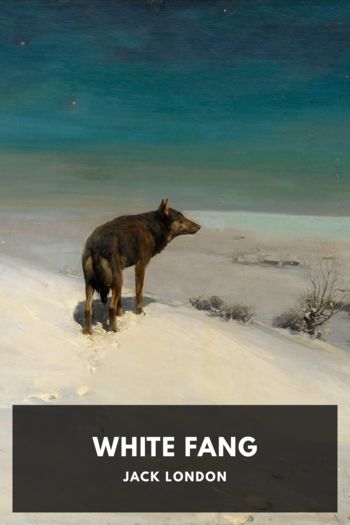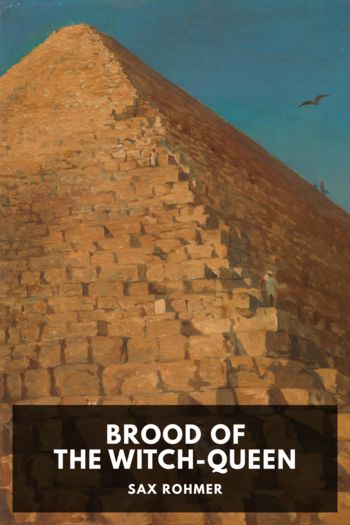Short Fiction - Robert E. Howard (the reading list TXT) 📗

- Author: Robert E. Howard
Book online «Short Fiction - Robert E. Howard (the reading list TXT) 📗». Author Robert E. Howard
The babel of a myriad tongues smote on the Cimmerian’s ears as the restless pattern of the Zamboula streets weaved about him—cleft now and then by a squad of clattering horsemen, the tall, supple warriors of Turan, with dark hawk-faces, clinking metal and curved swords. The throng scampered from under their horses’ hoofs, for they were the lords of Zamboula. But tall, somber Stygians, standing back in the shadows, glowered darkly, remembering their ancient glories. The hybrid population cared little whether the king who controlled their destinies dwelt in dark Khemi or gleaming Aghrapur. Jungir Khan ruled Zamboula, and men whispered that Nafertari, the satrap’s mistress, ruled Jungir Khan; but the people went their way, flaunting their myriad colors in the streets, bargaining, disputing, gambling, swilling, loving, as the people of Zamboula have done for all the centuries its towers and minarets have lifted over the sands of the Kharamun.
Bronze lanterns, carved with leering dragons, had been lighted in the streets before Conan reached the house of Aram Baksh. The tavern was the last occupied house on the street, which ran west. A wide garden, enclosed by a wall, where date-palms grew thick, separated it from the houses farther east. To the west of the inn stood another grove of palms, through which the street, now become a road, wound out into the desert. Across the road from the tavern stood a row of deserted huts, shaded by straggling palm trees, and occupied only by bats and jackals. As Conan came down the road he wondered why the beggars, so plentiful in Zamboula, had not appropriated these empty houses for sleeping quarters. The lights ceased some distance behind him. Here were no lanterns, except the one hanging before the tavern gate: only the stars, the soft dust of the road underfoot, and the rustle of the palm leaves in the desert breeze.
Aram’s gate did not open upon the road, but upon the alley which ran between the tavern and the garden of the date-palms. Conan jerked lustily at the rope which depended from the bell beside the lantern, augmenting its clamor by hammering on the iron-bound teakwork gate with the hilt of his sword. A wicket opened in the gate and a black face peered through.
“Open, blast you,” requested Conan. “I’m a guest. I’ve paid Aram for a room, and a room I’ll have, by Crom!”
The black craned his neck to stare into the starlit road behind Conan; but he opened the gate without comment, and closed it again behind the Cimmerian, locking and bolting it. The wall was unusually high; but there were many thieves in Zamboula, and a house on the edge of the desert might have to be defended against a nocturnal nomad raid. Conan strode through a garden where great pale blossoms nodded in the starlight, and entered the taproom, where a Stygian with the shaven head of a student sat at a table brooding over nameless mysteries, and some nondescripts wrangled over a game of dice in a corner.
Aram Baksh came forward, walking softly, a portly man, with a black beard that swept his breast, a jutting hook-nose, and small black eyes which were never still.
“You wish food?” he asked. “Drink?”
“I ate a joint of beef and a loaf of bread in the suk,” grunted Conan. “Bring me a tankard of Ghazan wine—I’ve got just enough left to pay for it.” He tossed a copper coin on the wine-splashed board.
“You did not win at the gaming-tables?”
“How could I, with only a handful of silver to begin with? I paid you for the room this morning, because I knew I’d probably lose. I wanted to be sure I had a roof over my head tonight. I notice nobody sleeps in the streets in Zamboula. The very beggars hunt a niche they can barricade before dark. The city must be full of a particularly bloodthirsty brand of thieves.”
He gulped the cheap wine with relish, and then followed Aram out of the taproom. Behind him the players halted their game to stare after him with a cryptic speculation in their eyes. They said nothing, but the Stygian laughed, a ghastly laugh of inhuman cynicism and mockery. The others lowered their eyes uneasily, avoiding one another’s glance. The arts studied by a Stygian scholar are not calculated to make him share the feelings of a normal human being.
Conan followed Aram down a corridor lighted by copper lamps, and it did not please him to note his host’s noiseless tread. Aram’s feet were clad in soft slippers and the hallway was carpeted with thick Turanian rugs; but there was an unpleasant suggestion of stealthiness about the Zamboulan.
At the end of the winding corridor Aram halted at a door, across which a heavy iron bar rested in powerful metal brackets. This Aram lifted and showed the Cimmerian into a well-appointed chamber, the windows of which, Conan instantly noted, were small and strongly set with twisted bars of iron, tastefully gilded. There were rugs on the floor, a couch, after the Eastern fashion, and ornately carved stools. It was a much more elaborate chamber than Conan could have procured for the price nearer the center of the city—a fact that had first attracted him, when, that morning, he discovered how slim a purse his roisterings for the past few days had left him. He had ridden into Zamboula from the desert a week before.
Aram had lighted a bronze lamp, and he now called Conan’s attention to the two doors. Both were provided with heavy bolts.
“You may sleep safely tonight, Cimmerian,” said Aram, blinking over his bushy beard from the inner doorway.
Conan grunted and tossed his naked broadsword on the couch.
“Your bolts and bars are strong; but I always sleep with steel by my side.”
Aram made no reply; he stood fingering his thick beard for a moment as he stared at the grim weapon. Then silently





Comments (0)